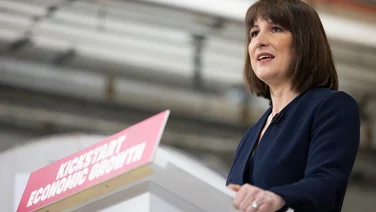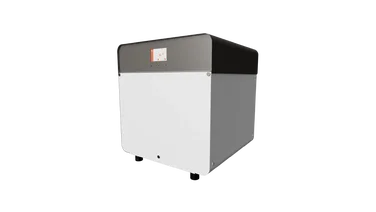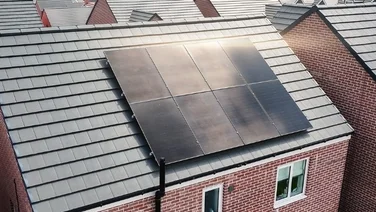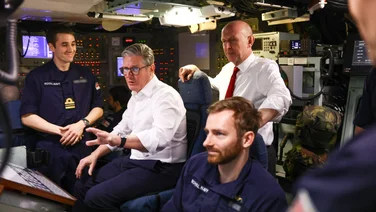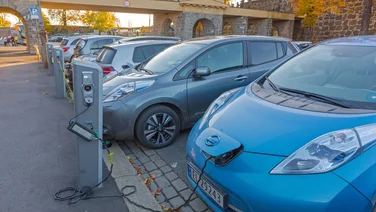✔ 18,000 empty planes will fly across Europe in early 2022
✔ These flights will release 422,280 tonnes of greenhouse gases
✔ Neither the EU nor Lufthansa seems likely to back down
Humanity is struggling to slow down climate change – and yet, thousands of planes are crossing our skies for no good reason.
The Lufthansa Group has revealed its airlines will oversee 18,000 flights this winter that are either completely or practically empty, to the extent that they would usually be cancelled.
Here’s why this climate atrocity is happening, and how it could easily be stopped.

Why are there empty flights?
In the European Union, airlines must maintain a certain level of flights to preserve their take-off and landing slots.
The European Commission, which enforces this ‘use it or lose it’ rule, lowered the level of required flights from the usual 80% rate to 50% when COVID-19 hit the continent in 2020.
As it stands, this number is set to be raised to 64% from the end of March 2022, but for the moment, you can hold onto all your slots at any given airport by using at least half of them.
However, with the Omicron variant of COVID-19 sweeping Europe and damaging people’s enthusiasm and legal ability to fly abroad, filling those planes is difficult.
Lufthansa CEO Carsten Spohr said the rule, even at its lower 50% level, will force him to send so-called ‘ghost planes’ across Europe from January to March.
Spohr told Frankfurter Allgemeine: “We have to make 18,000 additional, unnecessary flights in the winter just to secure our take-off and landing rights.
“While climate-friendly exemptions are found in almost all other parts of the world during the time of the pandemic, the EU does not allow this in the same way. That harms the climate.”
This is accurate – the rest of the world abides by the Worldwide Airport Slot Guidelines, which cancelled the 80% rule in 2020 and didn’t replace it with any other requirements.
In October 2021, the International Air Transport Association (IATA) announced that for the coming winter, these guidelines would stay the same.
“Slot relief remains an essential element of recovery – providing much needed flexibility to restore schedules in line with demand, as/when restrictions change,” the IATA stated.
The organisation noted that “the EU Commission adopted a more limited alleviation despite the continued lack of intercontinental recovery,” adding that this was “a critical concern … for our members.”
How bad are ghost flights for the climate?
Empty flights are extremely bad for the climate.
These 18,000 ghost flights, flown for unsatisfying reasons of bureaucracy and maximising profits, will release 422,280 tonnes of greenhouse gases into the atmosphere.
As these planes pointlessly plunder the Earth over the first three months of 2022, they will release emissions equal to those of 274,208 British people in the same time period.
That’s the same carbon footprint as everyone who lives in Sunderland, or Brighton and Hove. Fill three Wembley Stadiums, and you’d still fall short.
We calculated the overall figure by identifying that the 39 million flights completed in 2019 – the last normal year for air traffic – released 915 million tonnes of greenhouse gases, at a rate of 23.46 tonnes per flight.
The situation is so dire that it’s come to the attention of climate campaigner Greta Thunberg.
In response to the news, the famed activist tweeted sarcastically: “The EU surely is in a climate emergency mode.”
How can the empty flights be stopped?
There are two solutions: either Lufthansa stops the ghost flights and lets its take-off and landing slots go, or the EU relents and allows Lufthansa to fly fewer planes to keep its slots.
Option 1: Lufthansa lets its slots go
Lufthansa spokesman Boris Ogursky, unsurprisingly, is not in favour of this option, preferring to place the blame at the EU’s feet.
He said: “Other regions of the world are taking a more pragmatic approach here, for example by temporarily suspending slot rules due to the current pandemic situation. That benefits the climate and the airlines.”
Brussels Airlines, as part of the Lufthansa Group, is set to oversee 3,000 of the empty flights.
Spokesperson Maaike Andries defended his airline’s actions, saying: “These flights would normally be cancelled by us to make sure we don’t operate unnecessary flights from both an ecological and an economical point of view.
“However if we would cancel all those flights, this would mean we pass under the minimum limit to keep our slots. The same issue is valid for all carriers in Europe, as this is a European law.”
Option 2: The EU relents
These complaints have fallen on deaf ears, providing onlookers with little hope that the EU will back down.
A European Commission spokesperson defended the 50% rule in January 2022, saying it brought “much needed continued air connectivity to citizens.”
And as far as controversial Ryanair CEO Michael O’Leary is concerned, Lufthansa should “shut up.”
O’Leary told Politico the German company had benefited from a government bailout (which it has now repaid in full) and the lower 50% rule (which applies to all planes in the EU).
“And now Lufthansa’s still not happy,” he added. “They don’t want to operate ghost flights because: ‘Ohhh, the environment.’”
O’Leary was a climate change denier for many years, calling the phenomenon “horseshit” and “complete and utter rubbish,” before seemingly having a change of heart in 2021, in response to his customers’ concerns – but apparently that was short lived.
He continued: “The solution is simple: sell the seats. Shut up, stop complaining, and allow at least the taxpayers that bailed you out some benefits by giving them cheap seats.”
A Lufthansa spokesperson responded: “Ryanair and Michael O’Leary are obviously misinformed.”
Will we see an end to empty flights?
Don’t hold your breath.
With the EU and Lufthansa showing no willingness to come to an agreement for the good of our continued existence on this planet, it’s likely all 18,000 of the ghost flights will come to pass.
Outside lobbying isn’t working either. After finding out 3,000 of the empty flights will bear the Brussels Airlines insignia, Belgium’s Deputy Prime Minister Georges Gilkinet called the 50% rule “environmental, economic and social nonsense,” according to CNBC.
He raised the issue in a letter to the European Commissioner for Transport Adina Vălean, who dismissed his and others’ criticisms.
She told a European Parliament member that the 50% rule had “provided airlines with all the flexibility they needed for almost two years now, while also ensuring adequate protection for the interests of passengers and airports.”
This gives more weight to the argument that if logic was going to prevail and the EU was going to drop the rule, it would have already.
Climate group Stay Grounded summed it up to Euronews Green, saying: “It seems like the fact that we’re in a severe climate crisis and that flights are the fastest way to fry the planet has not yet arrived in the heads of decision makers and airlines.
“If it had, empty flights would not be allowed anymore.”

